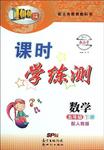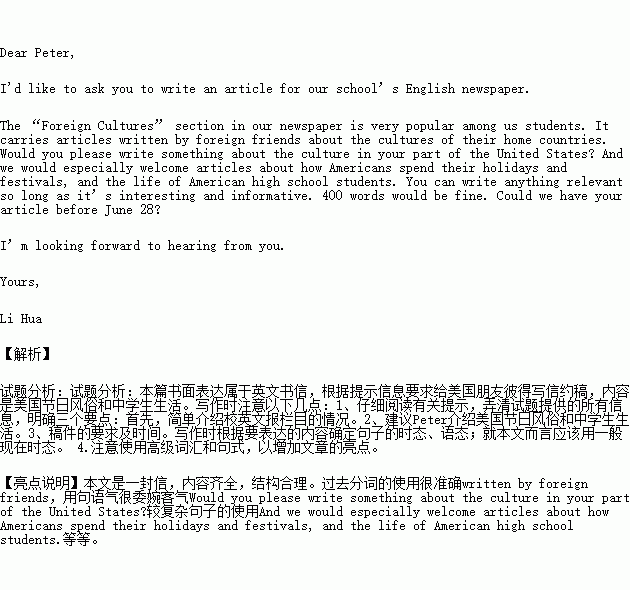题目内容
假定你是李华,你校英文报“外国文化”栏目拟刊登美国节日风俗和中学生生活的短文。请给美国朋友彼得写信约稿,要点如下:
1. 栏目介绍。
2. 稿件内容;
3. 稿件长度:约400词汇;
4. 交稿日期:6月28日前。
注意:1. 词数100左右;
2. 可以适当增加细节,以使行文连贯的;
3. 开头语已为你写好。
Dear Peter,
I’d like to ask you to write an article for our school’s English newspaper.
_______________________________________________________________________________
_______________________________________________________________________________
_______________________________________________________________________________
_______________________________________________________________________________
_______________________________________________________________________________
_______________________________________________________________________________
_______________________________________________________________________________
_______________________________________________________________________________
_______________________________________________________________________________
 百年学典课时学练测系列答案
百年学典课时学练测系列答案
